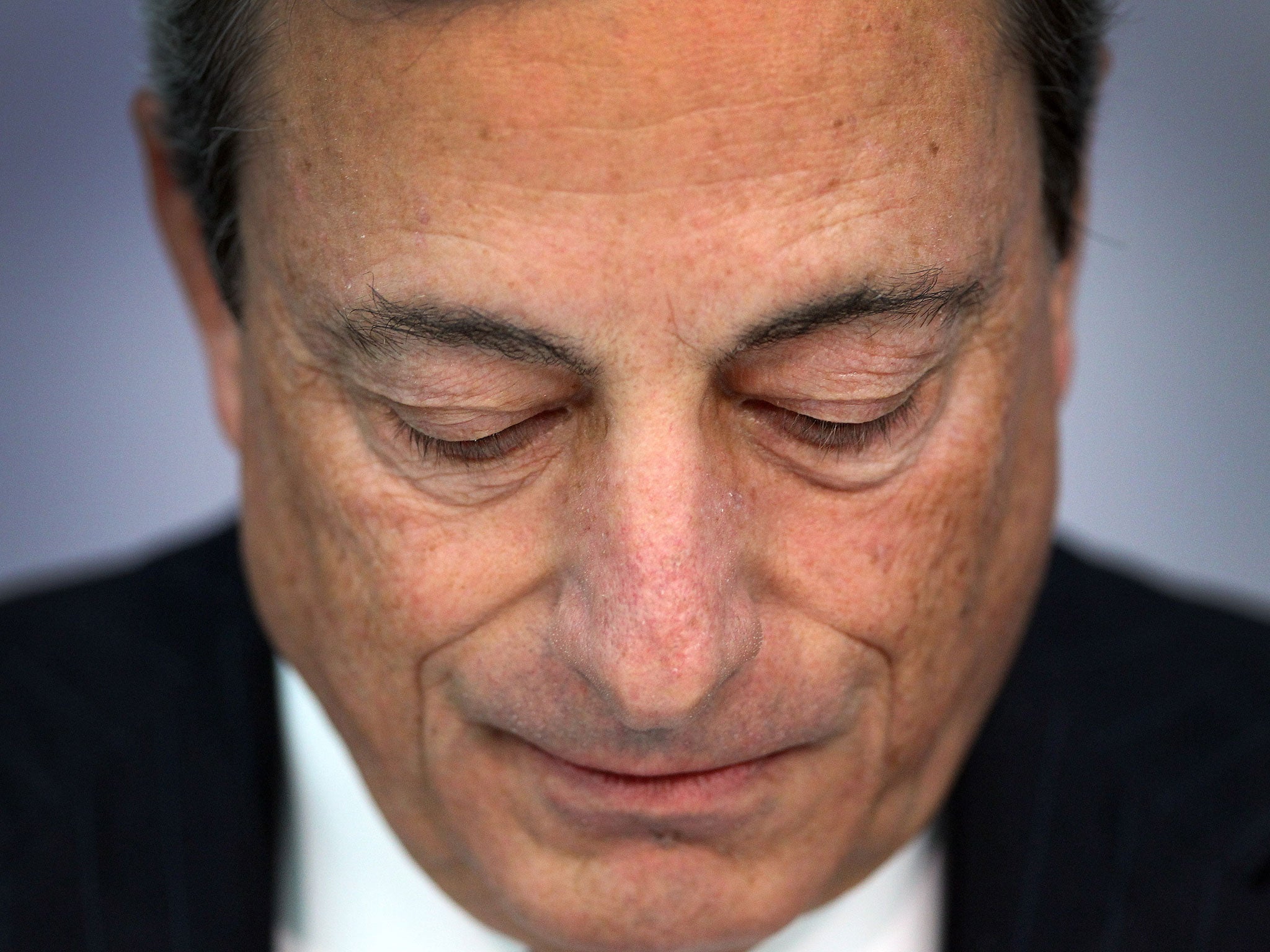Eurozone banks braced for ECB stress test results

While the rest of us enjoy a lazy Sunday, bankers across Europe will be having a nerve-jangling day. At noon in Frankfurt they will receive the results of the European Central Bank’s examination of their financial strength.
Of the 130 banks scrutinised in the stress tests, some smaller names from those countries worst affected by the eurozone debt crisis — Ireland, Italy, Greece, Spain and Portugal — and a bank from Austria are predicted to have failed.
They will have until 10 November to produce a plan to raise more capital, and nine months to actually obtain the cash.
The vast majority of banks will be given the all-clear and they can look forward to a lift in their share prices when the markets open again on Monday morning — for months now, the whole sector has been cloaked in uncertainty, with rumours circulating as to likely failures.
But while there will be sighs of relief, and a feeling of wishing to move on, much hinges on the outcome.
We have to hope this is third time lucky — we’ve had two rounds of tests so far, both of which neglected to reveal problems at banks that later required bailouts. If the system of checks and balances is to have any credibility at all, if the eurozone is to regain any optimism, the ECB must get it right.
Those previous tests were conducted under the auspices of the European Banking Authority. This third batch, led by the weightier ECB, is intended to restore confidence.
For that to occur there must have been consistency of treatment. If there are glaring country differences then ridicule will inevitably follow.
While attention will be heaped on the banks that fail, it’s not clear how those that only just pass will be affected. If they’ve barely scraped through, they will be in no better shape than those that fell short.
The main outcome, however, will not come on Sunday afternoon or on Monday morning. The tests have forced banks to clean up their balance sheets. If there’s more of the same in subsequent months, then the exercise will have proved its worth.
If, too, it goes some way towards unblocking bank lending in Europe, to providing a glimmer of life in a region beset by stagnant economic growth and terrified by the prospect of deflation, then that can only be beneficial. It should not only be bankers and investors who should be watching on Sunday.
Subscribe to Independent Premium to bookmark this article
Want to bookmark your favourite articles and stories to read or reference later? Start your Independent Premium subscription today.

Join our commenting forum
Join thought-provoking conversations, follow other Independent readers and see their replies